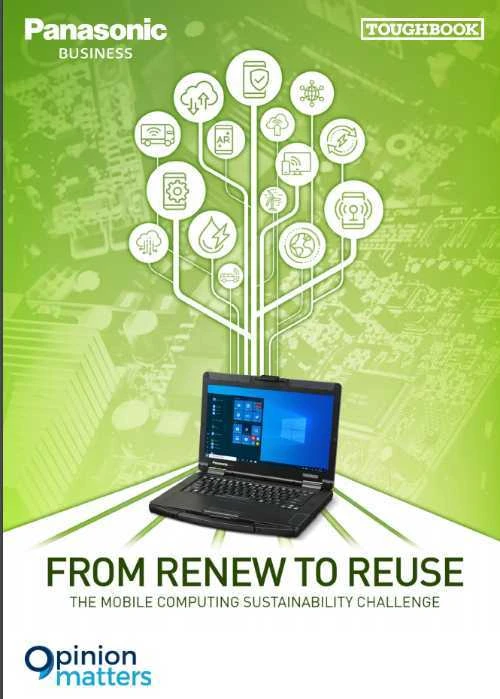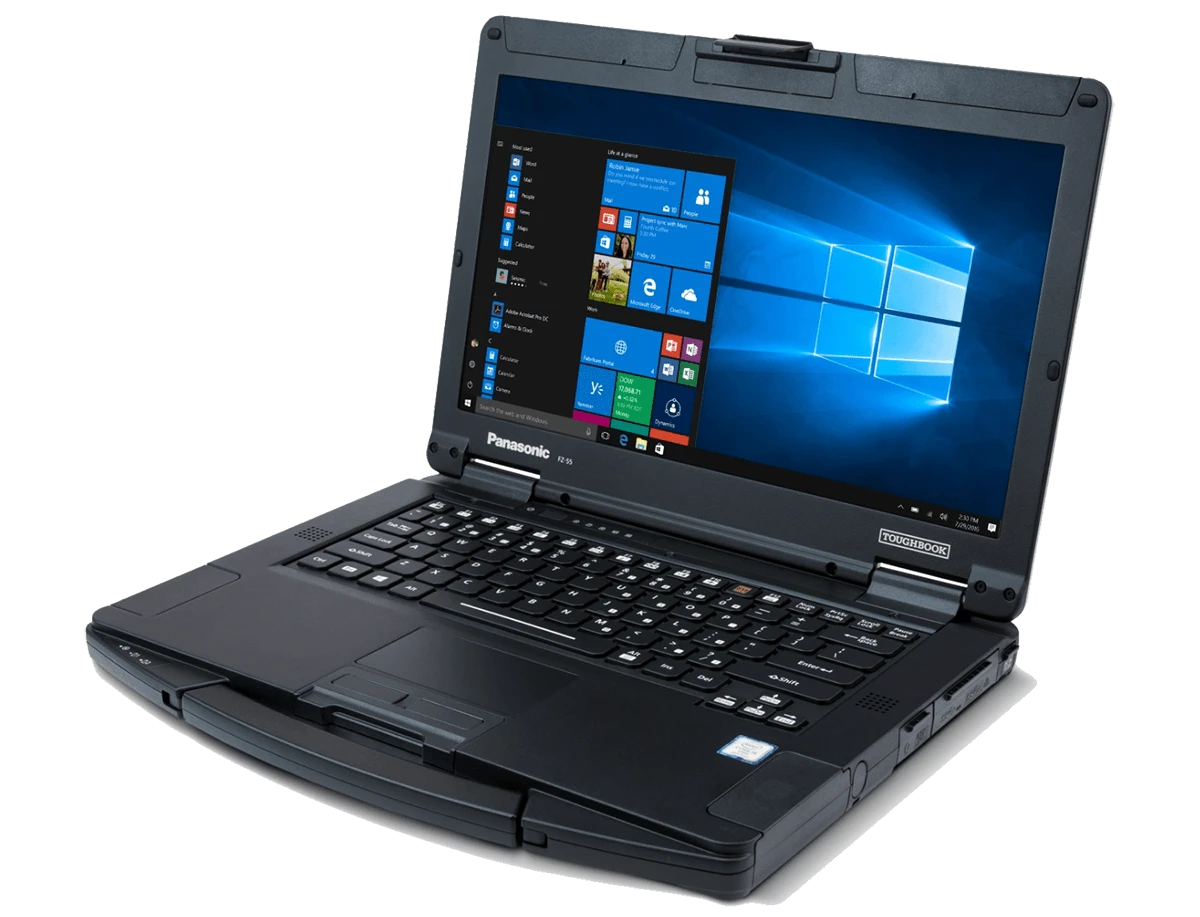Panasonic has released its new research, “From Renew to Reuse: The Mobile Computing Sustainability Challenge”. The independent study of 772 IT decision makers in the UK, Germany and Sweden, examined the importance of sustainable and environmentally-friendly practices in the purchase, operation and disposal of their mobile computing devices.
Although there was a clear desire to use their mobile devices in a more sustainable way, respondents indicated that business pressures were preventing progress.
UK businesses are struggling to implement sustainable mobile computing strategies as rapidly changing requirements are forcing businesses to change their devices every 1-2 years (50%) and 3-4 years (44%).
Key findings for the UK

Less than half of those surveyed said they evaluated their devices on the basis of sustainability or environmental impact before purchase.
Beyond regular maintenance (65%), around half were trying to be more proactive to prolong the life of their devices during operation, by sending information (57%) or providing training (50%) about how to look after the devices.
At the end of life, 54% do not regularly repurpose devices for a secondary use in their business.
At end of life, more than a quarter (26%) admitted their organisation had just disposed of devices.
Almost half (43%) have taken part in return schemes and 59% have sold to a secondary market.
Security remains the main priority at end of life with 66% saying their chief concern was wiping clean all device data. An environmentally-friendly recycling process was a concern for just 45% of respondents.
Barriers to sustainable practices
Barriers preventing more sustainable practices appear to be rapidly changing business demands, which are forcing the vast majority of businesses to change their devices every 1-2 years (50%) and 3-4 years (46%).
However, the research points to the fact that there is a desire to do more. Almost half (45%) indicated they would regularly repurpose devices if they could be easily reconfigured by end users (repurposing from 21%-50% of devices.).
“Although there is a clear desire to do more, business pressures appear to be preventing IT decision makers from taking a more holistic look at their mobile computing strategy and considering sustainable best practices,” said Jan Kaempfer, Head of Marketing at Panasonic Business.
“The latest generation of devices can be repurposed easily by the user in the field providing the opportunity for devices to be reconfigured for different uses, multiple times across the life of the device. This type of breakthrough design and technology will enable businesses to handle rapidly changing requirements and help to encourage a more sustainable mobile computing strategy.”

Panasonic semi-rugged TOUGHBOOK 55 notebook sets a new standard for mobile computing. For the first time, users can customise their device for different tasks while in the field, such as boost graphics capabilities, add a smartcard reader, additional storage or a DVD or Blu- Ray drive with a simple switch, fit and click of the new functionality into the TOUGHBOOK Universal Bay.
In addition, a front expansion slot can be used to quickly integrate a fingerprint reader, RFID or regular smartcard reader or for the addition of a second battery. All these exchanges can be done in the field, re-purposing core functionalities of the TOUGHBOOK 55 and extending the product life cycle.
The independent research, titled From Renew to Reuse: The Mobile Computing Sustainability Challenge, was commissioned by Panasonic and carried out by Opinion Matters. It surveyed 772 IT decision makers in the UK, Germany and Sweden in companies of more than 50 employees.
A full summary of the research findings can be found here.



